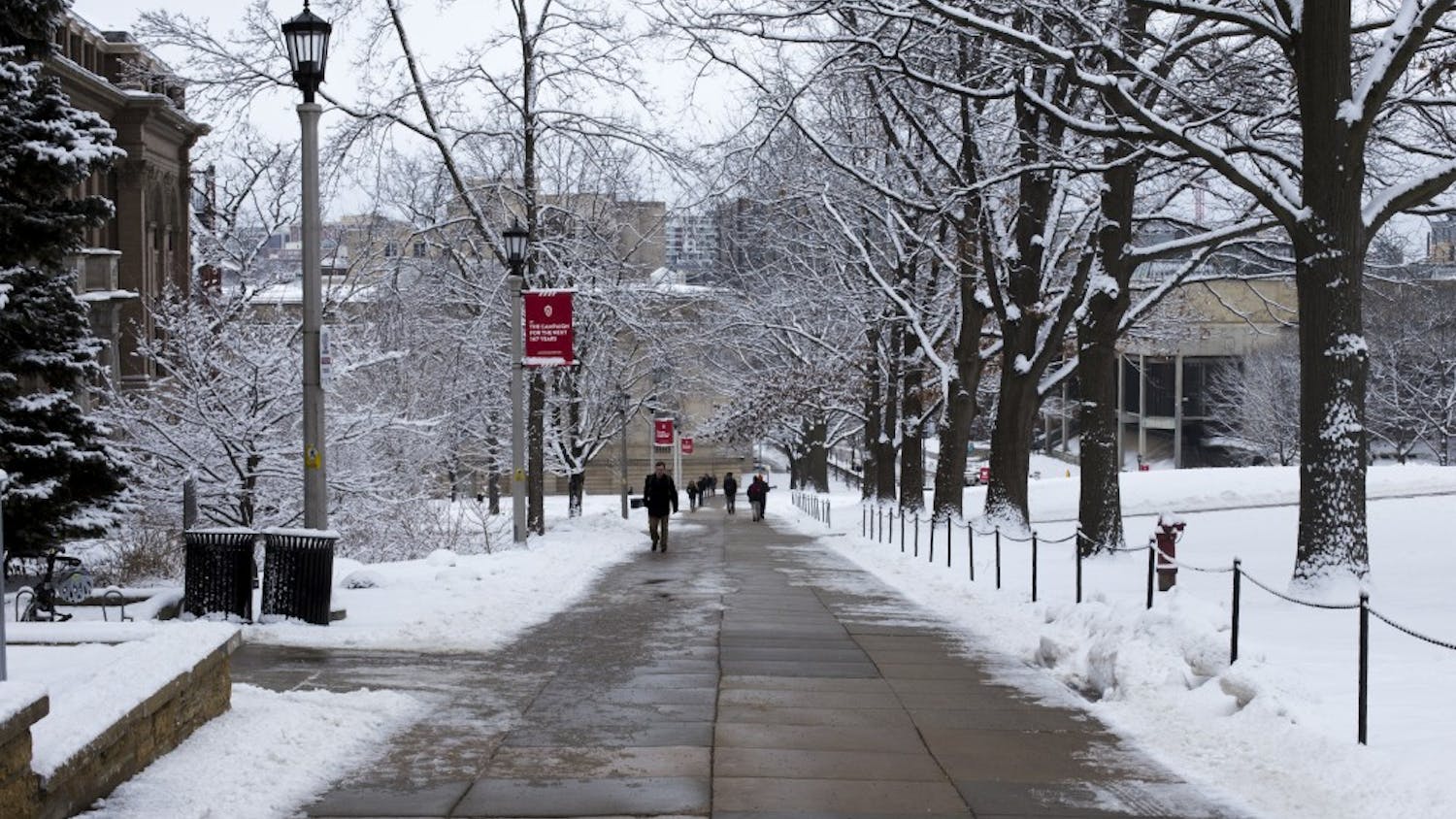Global warming is emerging as an important topic among academics because not only is it occurring at a rapid rate, uncertainties are surfacing about how humans and nature will be able to adapt.
In the first Wisconsin Climate Change Forum, Oct. 6, keynote speaker Stephen Schneider, Stanford University professor of biological sciences, addressed the need for effective climate change policies.
According to the United States Environmental Protection Agency, humans are changing the atmosphere's chemical composition through their emissions of greenhouse gases. The gases act as a blanket for the earth, trapping heat inside.
The EPA expects that climate changes will include increases in temperature and storms. These changes will affect many ecological systems, and consequently will influence human health and the economy.
Panelist Galen McKinley, UW-Madison professor of atmospheric and oceanic sciences, added that not only does carbon dioxide have a warming effect on land, but the oceans are becoming more acidic, so there are potentials for large impacts on ocean ecosystems.
Animals and plants are responding to the warming climate by relocation or extinction.
""There is a discernable impact of climate on plants and animals that are exhibiting change,"" Schneider said.
Around the world, many countries have developed goals to reduce emissions. The United States Climate Change Policy, formulated in 2002, states a goal of reducing emissions 18 percent by 2012.
This goal is not effective, according to Schneider, because the government bases its goal on voluntary reduction of emissions, an unrealistic expectation.
Additionally, the United States opted not to join the Kyoto Protocol to the United Nations Framework Convention on Climate Change. This agreement requires the involved countries to cut greenhouse gas emissions by targeted levels. More than 160 other nations have signed this agreement, but the United States, the leader in pollution, did not.
According to the panel, climate change is a global problem that must be handled locally. Climate change at a local scale has helped gain bipartisan support for action. Twelve states have climate change policies, so change is coming from the bottom up.
Panelist member Erhard Joeres, UW-Madison professor of civil and environmental engineering, said that there is a lot of grassroots support for climate change policy at the state level. He said he believes that people need to encourage the government need to step in and help regulate policy.
According to the EPA, Wisconsin's climate may notably change in the next century. Based on projections from the Intergovernmental Panel on Climate Change and the United Kingdom Hadley Centre's climate model, Wisconsin temperatures could increase by about four degrees accompanied by an increase in precipitation by 2100.
Due to the fact that everyone is sharing the atmosphere, ""we have to find a way to get some kind of agreement across all of these diverse groups,"" Schneider said. ""Climate cannot be changed alone; rather, it must be a group effort.""
The panel agreed that it is difficult to adopt a climate policy because it is hard to make estimations about the future. Models help to make projections, but Schneider said, ""There is no empirical way to evaluate the future.""
Though we have already observed changes such as an increase in surface temperature, Schneider said, ""There is no such thing as a threshold beyond which we can prevent a problem.""
However, the actions of industry are not without consequences. ""The more we put in the atmosphere now, the harder to undo that in the future,"" said Galen McKinley, UW-Madison professor of atmospheric and oceanic sciences.
In the meantime, Joeres provided a potential solution to reduce greenhouse gases, proposing that the United States adopts a road tax based on the amount of emissions vehicles produce to reduce carbon dioxide.
According to Schneider, students can make a difference in slowing down the climate change by joining organizations to raise awareness and acting as good consumers. ""There's plenty of room for us to work at all levels,"" Schneider said.





